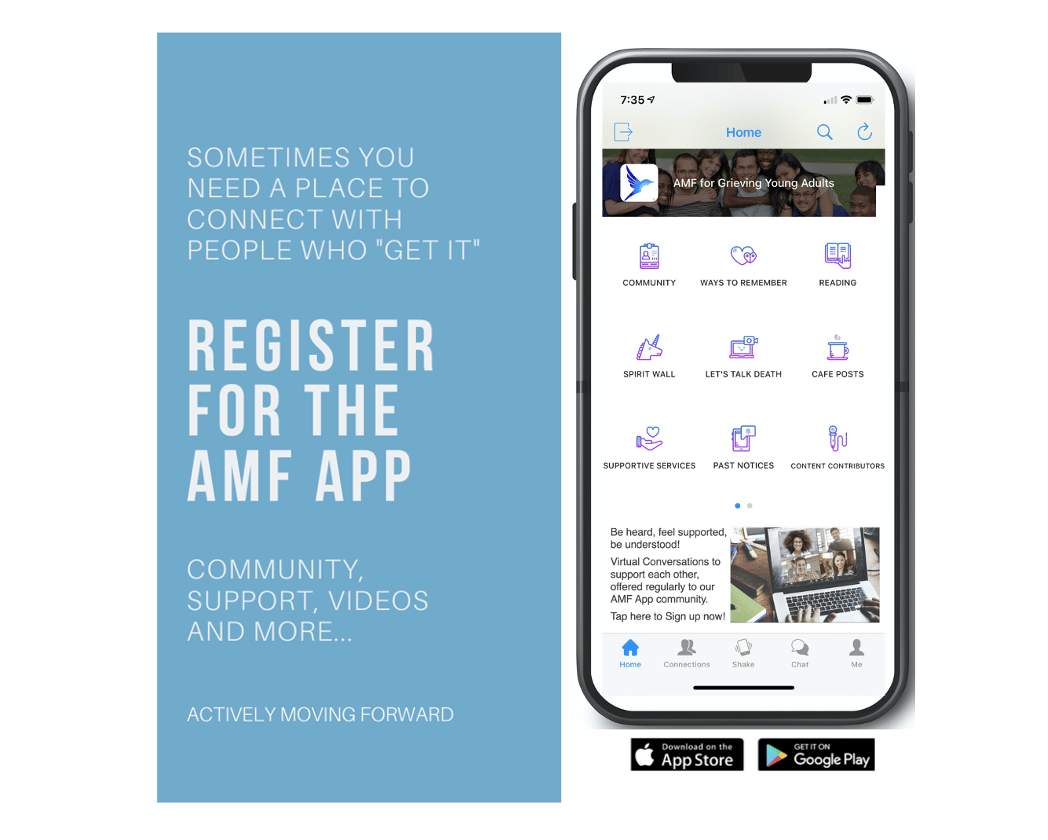
Based on our research with university administrators, counseling centers, and our work with AMF’s young adults, we have identified several action steps that university administrators and counseling center directors can take to help grieving college students on three levels: student, campus, and national.
STUDENT-LEVEL STEPS:
First, many students troubled by grief present to the counseling center with problems that are secondary to the death loss, such as substance abuse or insomnia. Thus, mental health professionals should conduct a thorough loss assessment as a part of all routine intake interviews. Both death and nondeath losses are important to understanding the experience of college students who present for counseling (Servaty-Seib & Taub, 2010). Campus professionals must be familiar with current bereavement-related theories, be attuned to the behaviors that could indicate an internal struggle with bereavement, and be prepared to intervene appropriately (Neimeyer, Laurie, Mehta, Hardison, & Currier, 2008).
Second, it is important that campus professionals communicate directly with grieving college students that they are willing to speak with and support them during times of grief.
A third critical component is that campus professionals educate bereaved students about the unique challenges that they may face and share information about the various, underutilized grief resources available (e.g., Campus Ministry, Residential Life).
Fourth, campus professionals should encourage grieving college students, particularly males, to participate in service activities, such as a local cancer walk in memory or honor of their person. And, finally, campus professionals can share information about Actively Moving Forward®, AMF and the AMF App.
Let Student’s Know...There’s an AMF App just for grieving young adults, where they can join a community of like-minded individuals who are all seeking the support, connections and empowerment through one of their life’s most difficult moments, bereavement.
At no charge, registered members will have full access to virtual support groups, tools, resources, community engagement via direct messaging, group chats, and interactive comment boards. Group members can easily find other’s grieving the same type of death loss.
CAMPUS-LEVEL STEPS:
First, campus leaders should determine if there is a contact or identifiable location on campus where bereaved students can go to seek support, such as the counseling center, student health service, an AMF chapter, or campus ministry (Balk, 2001).
Second, holding an informational grief workshop on campus is another excellent mechanism for supporting students. AMF has many resource materials for planning one of these events.
Third, campus administrators should determine if supportive policies, such as bereavement leave policies, are in place to assist bereaved students. If policies are in place, administrators should review current policies to determine if they are aligned with recommendations presented elsewhere (see Servaty-Seib & Taub, 2010). If no policies exist, administrators should advocate for such policies.
Finally, professionals can promote the idea of an annual memorial service or memorial garden for the loved ones of students who have died (see Hamilton, 2008, and Knudson, 2011, for further information for supporting).
All of these steps and more are addressed in AMF’s Grief Sensitive Campus Initiative. Become an institutional leader and address this silent epidemic that is now a societal issue, college student grief. Inquire about AMF’s Grief Sensitive Campus designation today! ADMIN@HealGrief.org
NATIONAL-LEVEL STEPS:
Active support of these student and campus-level efforts by campus personnel is critical to sustaining them on the national level.
Second, national efforts can involve sharing information about AMF with colleagues from other universities.
Third, AMF feeds off the experiences, ideas, and advice university administrators and counseling directors can offer. There are many roles for new volunteers, including serving on an advisory board or conducting research into the effectiveness of AMF programs in meeting the needs of bereaved college students.
Fourth, national mental health membership associations should include college student grief theories as a standard part of program training (Servaty-Seib & Taub 2010). Bring these issues to your professional organization’s attention to start the conversation about grief. AMF is happy to join you in these conversations to help build a more grief sensitive environment.
Finally, campus professionals should engage in continuing education regarding grief and mourning through organizations such as the Association for Death Education and Counseling (www.adec.org). You can join a network of others seeking to better support the needs of grieving young adults.



